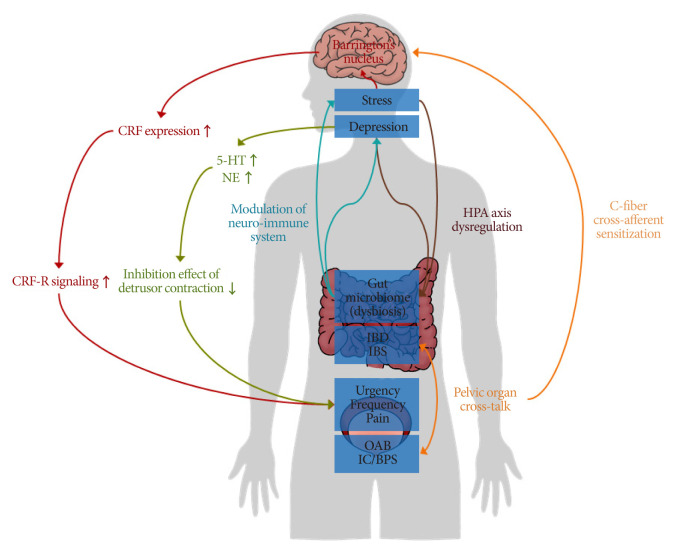Fig. 1.
Functional bladder disorders have close relationship with brain-gut axis. Stress/depression usually induces overexpression of corticotropin-releasing factor (CRF), and this makes urinary urgency, frequency, and pain. The affective disorders in brain induce dysregulation of serotonin (5-hydroxy tryptamine, 5-HT) and norepinephrine (NE), and altered levels of these neurotransmitters could decrease inhibition effect of detrusor contraction. It could also increase risks of urinary urgency, frequency and pain. The noxious signal from bladder can affect the sensitivity of gut afferent through cross-sensitization. Cross-sensitization is one evidence of cross-talk between bladder and gut. Bladder has unique bacterial community, called urobiome. Interstitial cystitis/bladder pain syndrome (IC/BPS) and overactive bladder (OAB) patients have altered urobiome composition, called dysbiosis. Dysbiosis in bladder could affect gut microbiome and vice versa. Inflammatory bowel disease (IBD) and irritable bowel syndrome (IBS) could affect brain through brain-gut axis such as hypothalamic/pituitary/adrenal axis (HPA axis).

